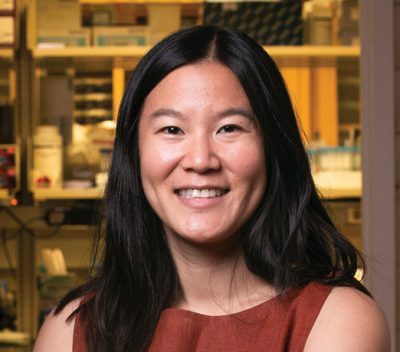Finding
 Jenny Tung of the Duke Center for Population Health and Aging and Associate Professor of Evolutionary Anthropology & Biology, et al find genetics nearly always shape the gut microbiome of wild baboons, that several of these microbiome traits are also heritable in humans, and that heritability increased with age.
Jenny Tung of the Duke Center for Population Health and Aging and Associate Professor of Evolutionary Anthropology & Biology, et al find genetics nearly always shape the gut microbiome of wild baboons, that several of these microbiome traits are also heritable in humans, and that heritability increased with age.
Taken together, the bacteria, viruses, fungi and other microbes that live in our intestines form the gut microbiome, which plays a key role in the health of people and animals. In new research, scientists found that genetics nearly always plays a role in the composition of the gut microbiome of wild baboons.
In the study published recently in Science researchers discovered that most bacteria in the gut microbiome are heritable after looking at more than 16,000 gut microbiome profiles collected over 14 years from a long-studied population of baboons in Kenya’s Amboseli National Park. However, this heritability changes over time, across seasons and with age. The team also found that several of the microbiome traits heritable in baboons are also heritable in humans.
The gut microbiome performs several jobs. In addition to helping with food digestion, it creates essential vitamins and assists with training the immune system. This new research is the first to show a definitive connection with heritability.
Excerpt from CPHA news release, Our genes shape our gut bacteria, new research shows.
